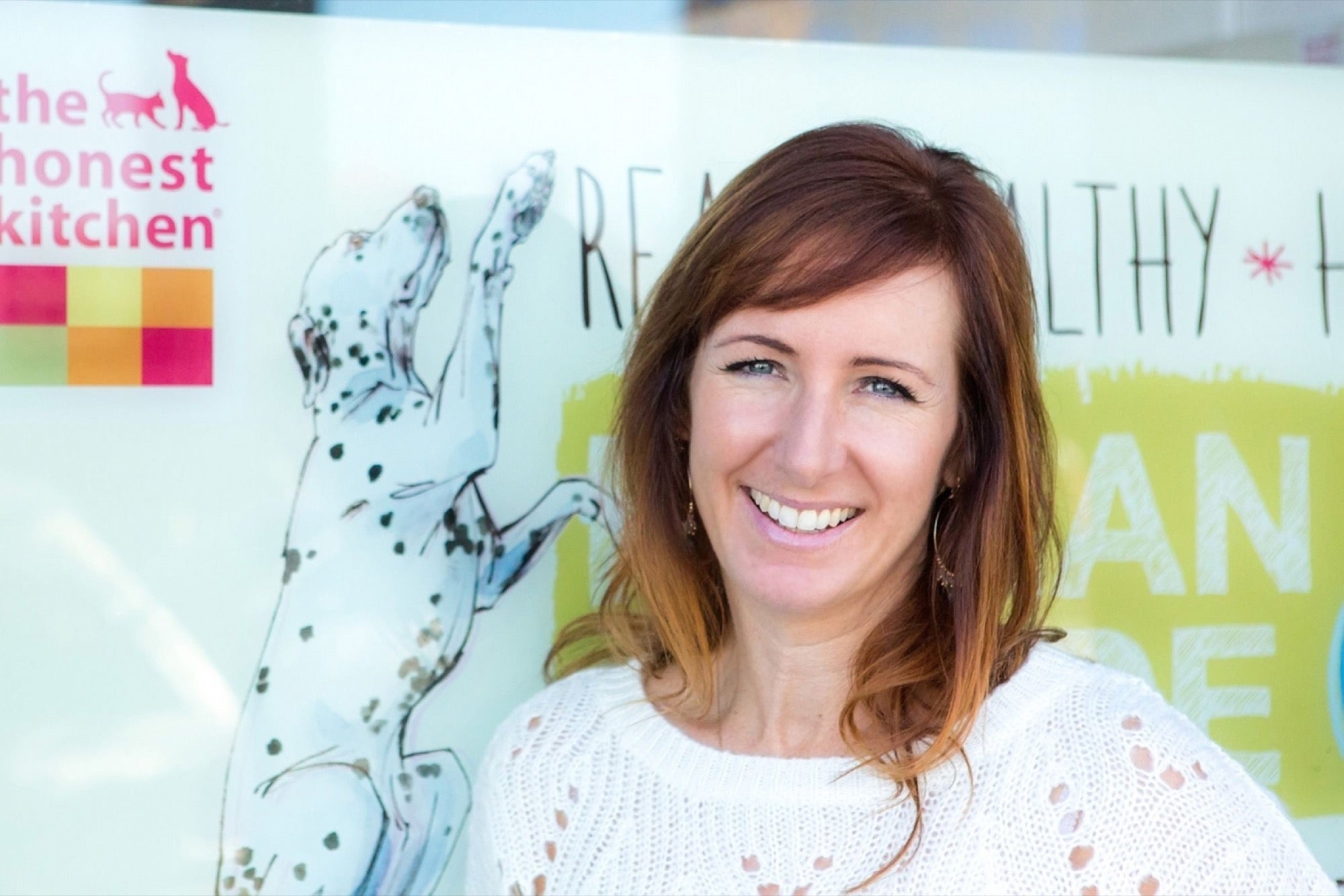Why This Multimillion Dollar Pet Food Company Won't Sell to PetSmart or Petco The Honest Kitchen has achieved a 30 percent year-over-year revenue growth rate in 14 years in the pet food market.


The Honest Kitchen was ranked in the 2016 Entrepreneur 360™, our annual list of the best entrepreneurial companies in the U.S. Founder and CEO Lucy Postins will make an appearance on a panel at the Entrepreneur 360™ Conference.
The original interview by Matt McCue appears in the November 2016 issue of Entrepreneur. Subscribe now.
Company: The Honest Kitchen makes dog and cat food with high-quality, human-food ingredients (like coconut, spinach, and quinoa).
Impact: In 14 years, the company has grown to 49 employees, and it's on track to double its revenue inside of two years, from $20 million in 2014 to a projected $40 million in 2016.
How did you decide there was a market for high-quality pet food?
My dog was suffering from chronic ear infections, and I was spending a fortune at the vet on steroids and antibiotics that never brought a true cure. So I researched and started making my own food for him. It cured his earaches—and made a huge mess in my kitchen. That led to the idea of dehydrated food, to still feed him healthy foods without the mess. I had a background in the conventional pet food industry, and I was aware of some of the unsavory things that go into good old-fashioned pet food, so I began to think about how to make my product different. Human-grade pet food was the most obvious way.
To clarify, "human grade" means food fit for human consumption and produced in a facility that makes human food?
Correct. The Honest Kitchen is the only nationally recognized kitchen allowed by the FDA to say "human grade" on the product label. We literally taste every single ingredient we use.
How's revenue growth?
We're growing, on average, 35 percent to 45 percent a year. Last year our revenue was $30 million, and this year our goal is $40 million.
Have you always been profitable?
My husband lent me $7,000 to get started, and we remortgaged our home several times to finance the company in the early years. That forced us to be profitable. When we got more formal banking relationships, they had covenants about being profitable. But then when we brought on investors in 2011, we were able to spend like drunken sailors—no, not really. That investment allowed us to focus on our top-line growth. Now we're starting to turn around toward profitability again.
How have you been able to achieve a 30 percent year-over-year revenue growth rate 14 years in?
We've hired a new chief marketing officer who came to us from a sports-and-outdoor-equipment background, and he helped elevate how we think about marketing. We put in a huge investment in our marketing campaigns, how they live both at the store level and have a social component. We recently did one that drove people to stores to take pictures with their pets in a photo booth and sample our products at the same time.
When you're already in about 4,500 retail stores, where do you go next?
There are between 10,000 and 12,000 pet food and pet supply stores in the U.S. and Canada that would be potential candidates for our product. Some of them are on the lower end of the spectrum—more grocery-level standard—so it will take them some time to catch up with what we are offering.
You've turned down the chance to be in PetSmart and Petco. Why?
Our product takes a bit of explaining, so we rely on the specialty pet store owner, manager, or well-trained employee to do it. I don't think the environment you find in a typical PetSmart or Petco store, which is generally staffed by teenage kids who don't care what you walk out with, is a good home for my brand.
Interested in applying for the 2017 Entrepreneur 360™ List? Click Here.












